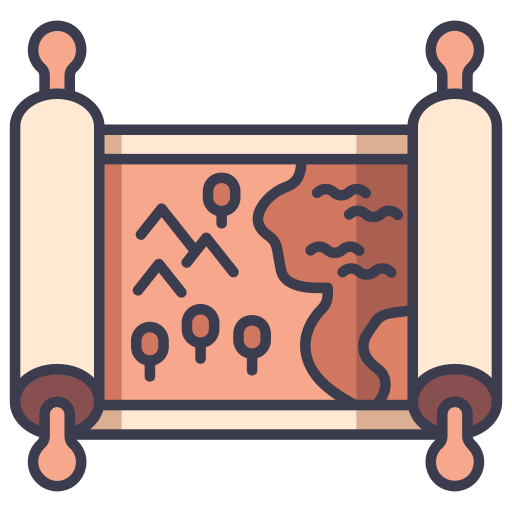The Living World & Your Story
AI Kingdom is more than a game of numbers; it's a storytelling engine. At its heart are dynamic narratives, constantly being shaped by your decisions and interpreted by the game's AI. Understanding these will help you master the art of ruling.
The Three Pillars of Your Story
Your kingdom's saga is told through three distinct, evolving descriptions stored in the game's database.
-

Player Description
This describes you, the ruler. It reflects your personality and ruling style. Are you a "cautious and pragmatic leader," a "ruthless warmonger," or a "benevolent sovereign beloved by the people"? This description changes based on the commands you give.
-

Kingdom Description
This describes your kingdom as a whole. It defines its reputation, current state, and identity. Is it a "fledgling realm brimming with potential," a "militaristic empire feared by its neighbors," or a "thriving trade hub"? This also evolves with your actions.
-

Region Story
Each tile on the map has its own unique story. This narrative gives flavor and history to every piece of your land, from the "Whispering Forests" to the "Sunken Mines." This story is generated by the AI when a tile is first colonized.
How These Stories Affect Your Gameplay
These are not just flavor text! The game's AI reads and interprets these descriptions every time you interact with it, creating a dynamic feedback loop.
 Influence on Minister Chat
Influence on Minister Chat
When you give a command to a minister, the AI receives all three descriptions as its primary context.
- Personalized Responses: The minister's tone and advice will change based on the story. A Minister of War speaking to a "ruthless warmonger" will sound different than when speaking to a "benevolent sovereign."
- Evolving Narrative: Your command doesn't just produce a result; it changes the story. When a minister replies, the AI also rewrites and sends back an updated `Player Description` and `Kingdom Description` to reflect the consequence of your latest action. Giving generous commands will make your description more benevolent over time.
 Influence on Royal Memorials
Influence on Royal Memorials
The story engine is deeply integrated with the "Royal Memorials" you receive.
- Problem Generation: When a new Memorial is generated, the AI uses your Kingdom Description and the specific Region Story as inspiration. A problem arising in the "resource-strapped Northern Mines" will be vastly different from a scandal in the "opulent Capital City."
- Solution Evaluation: When you write a solution to a Memorial, you are not choosing from pre-set options. The AI reads your written solution, evaluates its creativity and effectiveness based on the context, and assigns a score. Your solution then directly impacts and rewrites the Kingdom or Region story, creating a permanent mark on your world's history.
 The Tavern: A Window into the World
The Tavern: A Window into the World
The Tavern is a unique building that serves as a direct interface with the living, breathing world of AI Kingdom. When you, the ruler, visit a Tavern, you go "incognito" to interact with its patrons. These interactions are powered by the same narrative AI that shapes your ministers and memorials.
There are two types of characters you can meet:
-

The Innkeeper
Every Tavern has a permanent owner, an NPC whose personality and backstory are generated based on the specific history, terrain, and culture of the region where the Tavern is built. If your region becomes a war-torn battlefield, the once-cheerful innkeeper might become jaded and weary. Their story evolves with the story of their homeland.
-

The Traveler
There is a chance you might encounter a random traveler from a distant land. These NPCs are dynamically generated based on the context of their *own* homelands, which could be any other tile in the game world belonging to another player. Talking to them can give you unique, flavorful insights into the state of other kingdoms, their culture, and recent events, all from the perspective of a commoner.
The Tavern mechanic provides a powerful roleplaying tool, allowing you to gather lore and immerse yourself in the world your actions have helped create.
 The Grand Fair: An Audience with Your Subjects
The Grand Fair: An Audience with Your Subjects
In contrast to the incognito visits to a tavern, the Grand Fair is a public affair where your status as Ruler is known to all. Attending a festival at one of your Fairgrounds is a unique opportunity to mingle with your own populace and hear their stories directly.
-

Your Subjects
Unlike the strangers and travelers in a Tavern, the people you meet at a fair are your own loyal subjects. Each citizen is dynamically generated by the AI, with a personality and profession inspired by their unique hometown—a random region from within your own kingdom. They know they are speaking to their Ruler, and their conversations offer a direct glimpse into the lives and concerns of the people who make up your realm.
How to Attend the Fair:
- You must have a Fairground building within your kingdom.
- That Fairground must have an active festival running (initiated via the "Organize Fair" action from the map).
- You must click the Fairground's tile on the map and select the "Visit the Fair" option.
 The Specialists: Your Kingdom's Experts
The Specialists: Your Kingdom's Experts
Beyond the Tavern, your most advanced buildings begin to attract remarkable personalities. Upon reaching Level 6, you unlock an audience with the resident specialist—a unique, AI-driven character with their own name, history, and worldview shaped by the lands they serve. Engaging with these experts can reveal strategic information unobtainable elsewhere. And unlike the chance encounters in a tavern, these specialists are fully aware of their station; they know they are speaking to their Ruler and will address you with the respect you are due.
-

The Garrison Captain (Fortress Lv. 6)
A veteran soldier stationed at your fortress. The Captain keeps a close eye on the borders and can provide military intelligence regarding the troop movements and army sizes of neighboring and rival kingdoms.
-

The Guildmaster (Market Lv. 6)
A shrewd merchant who leads the local trade guild. Through his vast network of caravans and contacts, he can report on significant economic booms in other kingdoms, hinting at which rivals have recently amassed a large treasury.
-

The Old Farmer (Farm Lv. 6)
A wise elder deeply connected to the land. He can sense disturbances in the natural world, providing you with warnings about impending plagues, rampaging dragons, or awakened golems in the region.
-

The Alchemist (Alchemist's Tower Lv. 6)
An eccentric researcher. The Alchemist can detect the flow of magical energies, providing intelligence on which kingdoms are currently empowered by powerful, temporary buffs.
-

The Archbishop (Church Lv. 6)
The spiritual leader of your kingdom. Through his network of missionaries, he can report on the social and political climate of other realms, giving you insight into their current stability levels.
-

The Chief Magistrate (Courthouse Lv. 6)
The stoic guardian of law and order. He keeps a watchful eye on the court and can provide cryptic hints about which of your own ministers are showing signs of corruption.
-

The Headmaster (Academy Lv. 6)
A brilliant scholar. The Headmaster can offer intelligence on the technological progress of other kingdoms through his academic connections.
In essence, every major decision you make—from issuing a decree to a minister to chatting with a stranger in a Tavern—is a co-authoring act with the AI, continuously shaping the unique narrative of your reign.